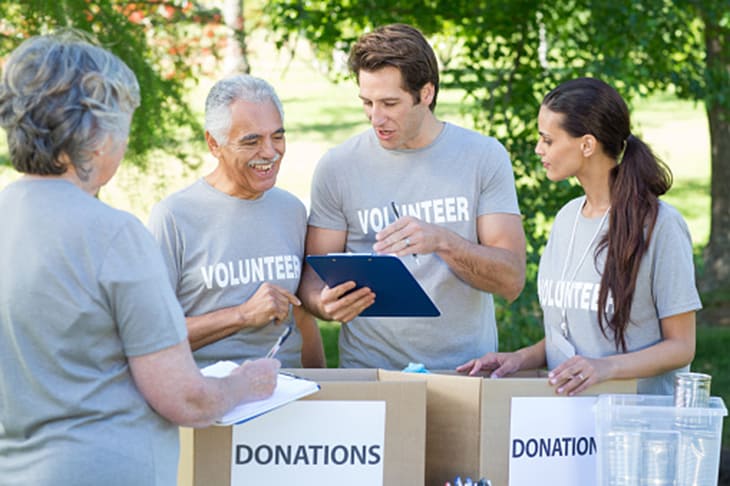
Source: https://huffingtonpost.com
After many decades of working and sacrificing, many people finally arrive at the threshold of retirement only to discover that instead of enjoying an abundance of time, freedom and opportunities, they struggle with anxiety, boredom, and in some cases, despair and depression.
The bad news is that there is no cure-all that guarantees that transition into retirement will be completely blissful and trouble-free. As with any other major shift, dealing with change is always a challenge. However, the good news is that retirees can dramatically improve their quality of life and make a positive difference in the lives of others, by simply doing one thing: volunteering.
According to global hospitality veteran Rakesh Sarna, here are five key benefits of volunteering after retirement:
1. Volunteering May Extend Lifespan
A study published in the journal Psychology and Aging found that volunteering among older adults reduced mortality risk on average by 47% overall, and on average by 24% when adjusted for effect sizes (i.e. controlling for other variables such as health, or the impact of volunteering) While informal or ad hoc volunteering is beneficial, structured volunteering through an organization such as a senior care center, church or library can be even more effective. It is a fantastic way for older adults to help themselves, while they support others.

Source: https:// thehartford.com
2. Volunteering Can Improve Physical and Mental Health
Multiple studies point to a singularly welcome conclusion: volunteering among older adults can improve both physical and mental health. For example, a study published in the Journals of Gerontology found that older adults who volunteered their time reported higher levels of well-being and self-esteem. A separate study, also published in the Journals of Gerontology, found that social service such as volunteering improves the brain’s elasticity — which is key in preventing or slowing down the onset of dementia and Alzheimer’s disease.
According to Rakesh Sarna, when volunteering involves some degree of appropriate physical activity — such as taking shelter animals out for walks or shelving items in a food bank — it can help thwart the excessive and dangerous weight gain that many retirees experience due to lack of mobility. Physical activity can also help alleviate the symptoms of chronic pain and promote circulation.
3. Volunteering Builds Enriching Relationships
According to researchers at the UCSF Division of Geriatrics, loneliness and social isolation can be especially dangerous and debilitating to older adults, and may be a precursor to severe health problems — and in some cases, death. Volunteering is a highly effective way for retirees to establish and deepen relationships with like-minded people in their local community.
It is very important for people to realize that pain and in some cases unbearable loneliness and social isolation is not limited to seniors who live by themselves. In fact, the majority of older adults who feel lonely have others in their household or residence.
4. Volunteering Can Help Bridge the Generational Gap
Older adults have an immense amount of insight to share with younger generations (such as how to deal with major challenges or deal with peer pressure), just as younger generations have much to share with older adults (such as how to efficiently surf the web or use a smartphone). Certain volunteering opportunities bring these demographic groups together, which enables them to mutually benefit from each others’ collective wisdom.
Rakesh Sarna states that it is very gratifying to pass on what we have learned — both from our successes and from our setbacks. It is also enjoyable and important to keep learning since that is what truly keeps us young at heart.

Source: https:// cloudfront.net
5. Volunteering Can Enhance One’s Perception of Available Time
A study at Wharton College revealed something rather paradoxical and counter-intuitive: people who volunteered felt that they actually had more available time, compared to those who did not volunteer their time. Researchers attributed this to the fact that volunteers feel that they allocate their time in a valuable way, which makes them believe that they will be able to accomplish more in the future. This overall self-efficacy — which is dubbed “time affluence” — creates the perception that time is more expansive and available.
According to Rakesh Sarna: Many retirees balk at the idea of volunteering, because they look at their schedules, and when they factor in various tasks such as doctor’s visits, housekeeping, etc. they do not see that there is enough time in the day to lend a hand. However, as research has shown, once they start volunteering there is a strong chance that they will find themselves with more time in their day. They are simply more efficient with their time and feel better about what they are doing.
The Bottom Line
Perhaps the most important message for retirees who have not yet experienced the rewards of volunteering is that they do not have to dive into the deep end and learn to swim. They can start by volunteering just a few hours a week, and dial things up from there according to their interests and availability. What is more, retirees with limited mobility or commuting challenges — but who have some familiarity and comfort with technology — can volunteer via the web by, for example, tutoring and mentoring kids. To facilitate this, a growing number of non-profit organizations are taking advantage of financial aid programs such as Google Grants to procure technology tools that enable volunteer experiences.
Rakesh Sarna concludes that retirees who volunteer in any capacity — in-person, online, or perhaps a mix of both — open the door to tremendous rewards and benefits. The only regret they will have is that they did not start volunteering sooner!









































